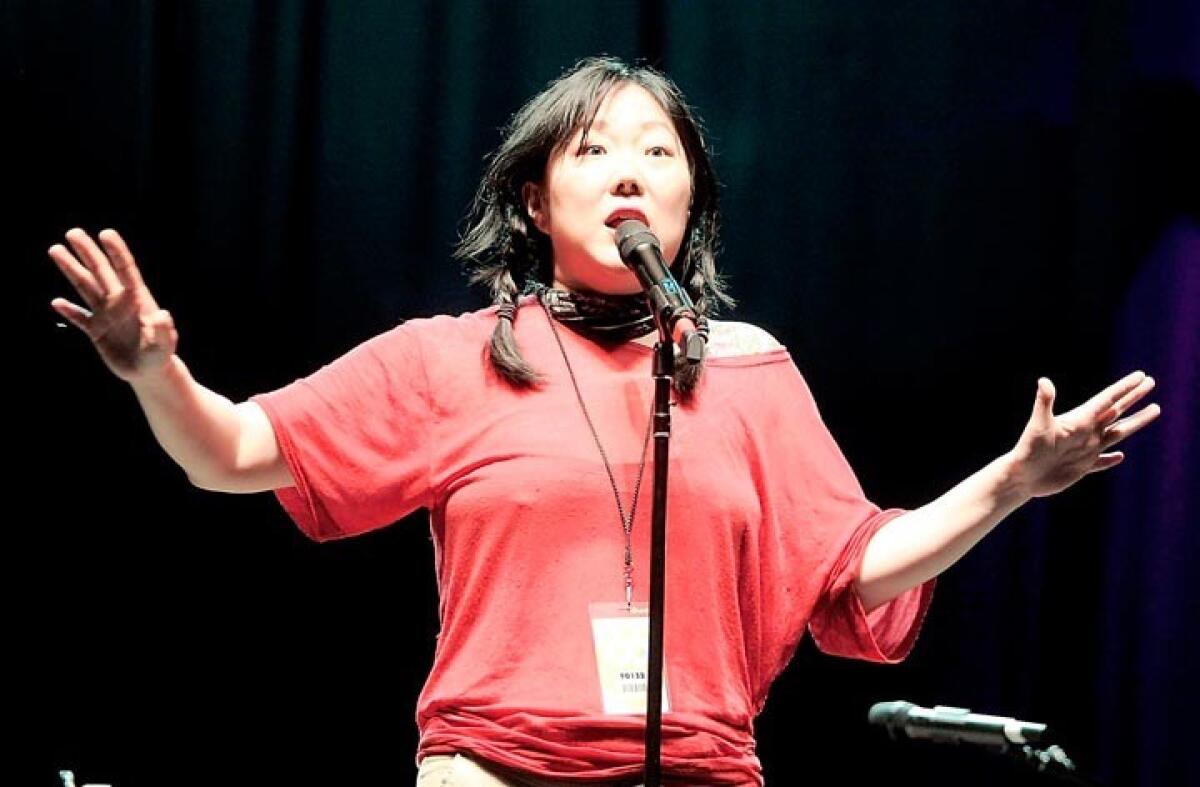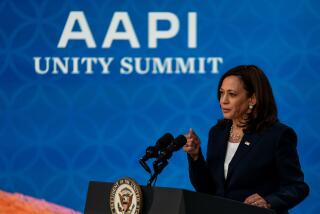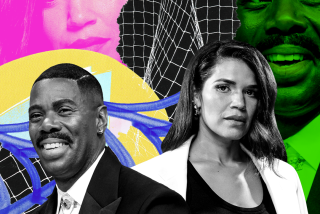The term ‘Oriental’ is outdated, but is it racist?

It is now politically incorrect to use the word “Oriental,” and the admonition has the force of law: President Obama recently signed a bill prohibiting use of the term in all federal documents. Rep. Grace Meng, the New York congresswoman who sponsored the legislation, exulted that “at long last this insulting and outdated term will be gone for good.”
As an Oriental, I am bemused. Apparently Asians are supposed to feel demeaned if someone refers to us as Orientals. But good luck finding a single Asian American who has ever had the word spat at them in anger. Most Asian Americans have had racist epithets hurled at them at one time or another: Chink, slant eye, gook, Nip, zipperhead. But Oriental isn’t in the canon.
And why should it be? Literally, it means of the Orient or of the East, as opposed to of the Occident or of the West. Last I checked, geographic origin is not a slur. If it were, it would be wrong to label people from Mississippi as Southerners.
Of course I understand that some insults have benign origins. “Jap,” for example, is simply a shortening of the word Japanese, but that one stings. As 127,000 Japanese Americans were carted off to internment camps during World War II, they were repeatedly referred to by their fellow citizens and the media as Japs. It was meant as an insult and understood as such. Clearly context is important.
The problem with “Oriental,” San Francisco Chronicle columnist Jeff Yang told NPR, is that “When you think about it, the term … feels freighted with luggage. You know, it’s a term which you can’t think of without having that sort of the smell of incense and the sound of a gong kind of in your head.” In other words it makes Asians sound exotic because it was in circulation at a time when exoticizing stereotypes were prevalent.
A funny thing I noticed is that my Caucasian colleagues, not my Asian colleagues, are most eager to remove Oriental from public discourse.
Erika Lee, director of the Immigration History Research Center at the University of Minnesota and author of “The Making of Asian America: A History,” offered a similar explanation to NBC News: “In the U.S., the term ‘Oriental’ has been used to reinforce the idea that Asians were/are forever foreign and could never become American. These ideas helped to justify immigration exclusion, racial discrimination and violence, political disfranchisement and segregation.” Lee also claimed that continued use of the term “perpetuates inequality, disrespect, discrimination and stereotypes towards Asian Americans.”
I don’t see it that way; I see self-righteous, fragile egos eager to find offense where none is intended. A wave of anti-Oriental discrimination is not sweeping the country. Besides, the term has been steadily falling out of circulation since the 1950s, and it’s mainly used today by older Asians and the proprietors of hundreds if not thousands of restaurants, hotels, shops and organizations with Oriental in their name. The well-intentioned meddlers will create trouble for exactly the population they want to defend.
My profession, Oriental medicine, is among those on the receiving end of the identity-politics outbreak. A funny thing I noticed is that my Caucasian (dare I say Occidental?) colleagues, not my Asian colleagues, are most eager to remove Oriental from public discourse. I suppose they’re busy shouldering their burden of guilt. Margaret Cho said it best: “White people like to tell Asians how to feel about race because they’re too scared to tell black people.”
In my field, the word “Oriental” appears in the title of 17 of the 58 accredited graduate-level schools, 21 of the 33 state associations and eight of the 24 national associations. Though the new federal legislation does not require us to act, it has increased pressure to toe the politically correct line.
Are we really going to waste time, energy and millions of dollars to rebrand our entire discipline — rename our schools and boards, redesign corporate identities, websites and publications and send out thousands of revised diplomas — all to wipe away an insult that doesn’t exist?
We have more important things to worry about. Big pharma is busy patenting the active compounds in the herbal formulas that Orientals have been prescribing for millenniums. The World Health Organization and National Institutes of Health have long recognized the efficacy of acupuncture (the mainstream of Oriental medicine) in treating dozens of conditions. More than 20 million Americans have used acupuncture. Yet neither Medicare, Medicaid nor federal employees’ insurance covers the procedure. Practitioners of Oriental medicine have struggled for years to gain acceptance with the Occidental medical community and with insurance companies and federal and state governments. Yet here we are focusing our efforts on language.
Jayne Tsuchiyama is a doctor of acupuncture and Oriental medicine.
MORE FROM OPINION
Russia’s got a point: The U.S. broke a NATO promise
More to Read
A cure for the common opinion
Get thought-provoking perspectives with our weekly newsletter.
You may occasionally receive promotional content from the Los Angeles Times.










